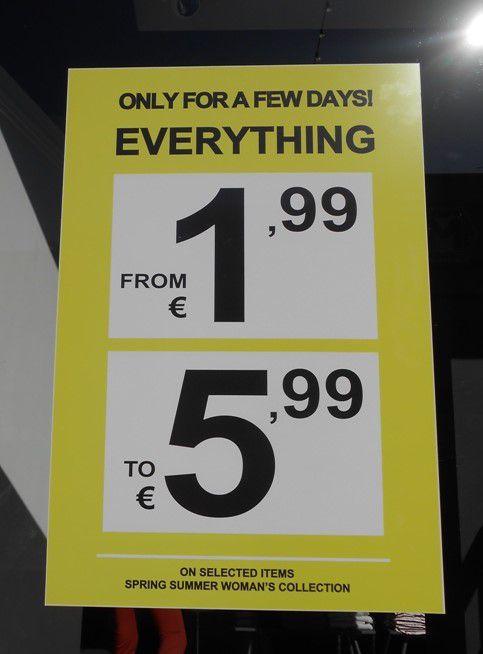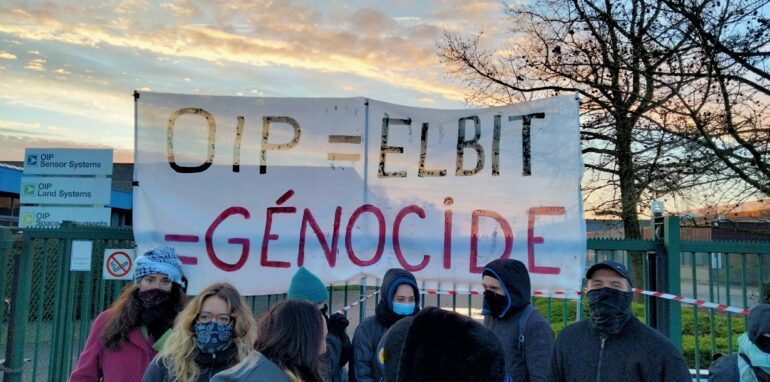Here’s another ‘green’ one who would like to flood (‘volplempen’) the earth with wind turbines (see also Over duurzaamheid en actie). Boris Palmer is a member of the German party Bündnis 90/Die Grünen and Oberbürgermeister of the city of Tübingen in Baden-Württemberg. Unlike many other green politicians, this one openly declares that his main aim nowadays is the saving of the wind industry. What’s at stake?
The German (federal) government would like to impose a distance of at least 1000 meters between wind turbines and residential areas. This distance should be maintained quite rigidly. In the taz Palmer declares that a spacing of a thousand meters would eliminate about half of the possible sites for wind generators. Due to the widespread resistance of the population against the siting of any more wind energy production zones, construction firms are said to have lost up to 75% of building orders, compared to two years ago. So Palmer’s glad that at least in one other German Land the government is aware of the “drama” that the wind industry “is very short of an exit”. To really save this industry however, awareness is not enough, immediate drastic action is required, he says. Boris Palmer has a plan.
The federal government should provide new building orders for the wind generator companies to be able to bridge the actual dip in construction jobs. As long as there are no new and final decisions about new sites, these turbines should be stocked on the factory grounds. Then later, when and where the Grünen will rule, the implanting of the machines could start immediately. In the meantime, the Länder should create their own planning agencies to handle the “much too complicated procedures” for the approval of construction sites. These agencies should have the task of providing yearly a certain amount of appropriate locations – read: of circumventing or overruling local resistance and (judicial) procedures, a tactic very common indeed to many other countries where the population resists further degradation of their living environment. The Bundesverband Windenergie recently demanded the identification of two percent of the surface of each Bundesland for the construction of wind generator zones.
Boris Palmer is known as a green ‘realist’. This year he published a book, called Erst die Fakten, dann die Moral – Warum Politik mit der Wirklichkeit beginnen muss (‘First the facts, then morality – Why politics have to start from reality’), which is briefly mentioned in the Konkret issue of December 2019. There it reads that his focus on practical solutions for ‘reality’ inevitably leads to the acceptance of given situations and mental dispositions – not getting over them, but making them more tolerable. When it comes to fugitives, in 2017 he states that “we can’t help them all”, he has no problems with woods being cut down for industrial areas, with trees falling for wind generators, with monkeys being used in animal experiments, and neither with breathing fine dust and nitrogen oxide, since the economy and science need growth, that’s how they can function.
The interesting thing now is that Palmer seems to be vaguely aware of one of the paradoxes of the Energiewende that he so resolutely promotes within the premises of growth and progress – although he stops at thinking it through. In the beginning of the taz-interview he refers to the federal government subsidizing the buying of electric cars, “which will cause us to need much more electricity than we produce nowadays”. All right. But what if you aimed at reducing the number of cars, wouldn’t that help? There’s a saying Endless growth is the logic of cancer cells. Tumours proliferate until they have killed the organism and in so doing destroyed themselves. The logic of capitalism is endless expansion and this logic is built upon credit. Growth must be financed through the expansion of money supply and the creation of new demand. But then again, to pay this credit further growth is necessary. An eternal treadmill. If you want to solve the ‘problems of reality’ within the dictates of reality, you stay within the logic of capitalism. If you stay within he logic of capitalism, you stay within he logic of growth. If you stay within the logic of growth, you will forever be confronted with the problems of reality. And even the wind generator industry can’t stay a growing market forever – there are even physical limits to its possible expansion in populated regions.
O, is it that simple? No, of course not. Recently I read somewhere that Egypt is one of the most energy consuming countries of northern Africa. She would need an annual economic growth of 7% to be able to produce the energy required to provide basic things such as housing and food to her impoverished population – assuming of course that those in power would want to do that. Seven percent growth in Egypt? Why not a global fair distribution of wealth instead? No, that would imply a transfer of wealth from the Western world to North Africa, and thus a relative slowing of wealth accumulation within western societies.
Do you need all this wealth accumulation around you? Take the example of the proliferation in Belgium of supermarkets. Right into the remotest corners of the kingdom, chains such as Aldi, Lidl, Carrefour, Albert Heyn, Colruyt, Delhaize, Alvo or Jumbo enter competition with one another with only one argument: cheap, cheaper, cheapest. Who profits from this growth? Not the staff – for them also the mantra is cheap, cheaper, cheapest: temporary or part-time contracts, ‘zero hour contracts’, students that are summoned via WhatsApp (the first one to react will have the assignment for the next day). Neither the producers and suppliers: everybody knows now about the human costs, here and in other continents, of this hunt for cheap food and household items. And yet, with the opening of a new Jumbo in the small municipality of Pelt for instance, the local retail market there will be saturated to more than two hundred percent. Those who stand to gain from this proliferation are not the consumers, but first of all the owners, super-rich families like the Schwarz (Lidl) and Albrecht (Aldi), or Colruyt and Delhaize.
How to get out of this? Dirk Bezemer in De Groene Amsterdammer talks about ‘repairing’ capitalism. But top-down policies, such as the Paris Climate Agreement or the European Green Deal won’t work as long as authorities serve the interests of banks, gas- and oil producers, industrial farming, etc. And the bottom-up repair through diminishing meat consumption, solar panels on the roof, investing in ‘green’ initiatives, local shopping … hits the limits of the habituation to comfort, consumption and seemingly endless possibilities.
OK, so let’s stay home tonight, and not take the car to drive to Brussels to go dining and attend a concert for which the artists came flying in from Canada (I first thought of Senegal or Bangladesh, but artists from countries like these don’t get a visa). We’ll spend the evening at home on the couch, munching locally grown carrots and drinking organic beer, and binge-watching whatever hyped series there is. German energy company Eon suggests that in 2018 video streaming has used worldwide as much electricity as Poland, Italy and Germany together: 200 billion kilowatt-hours. The assumption is somewhat dubious, due to a lack of hard figures, but certainly there is a so-called rebound-effect when it comes to digitalisation and IT-services. Electronic devices do need less and less energy and so become more ecological. But at the same time, more and more people use these relatively cheap devices for increasingly more activities.
This all leads to a double paradox. Neoliberals who strive for continuous growth have exploited populations and governments to such a degree that these cannot guarantee growth any longer; and those who strive for an Energiewende throw themselves into alternatives that require growth and further destruction of living environments.
This text also appeared on https://rivieren-en-meren.online/2019/12/12/1000-meters/. You can follow new publications by filling in your email address and clicking ‘suivre’.


















